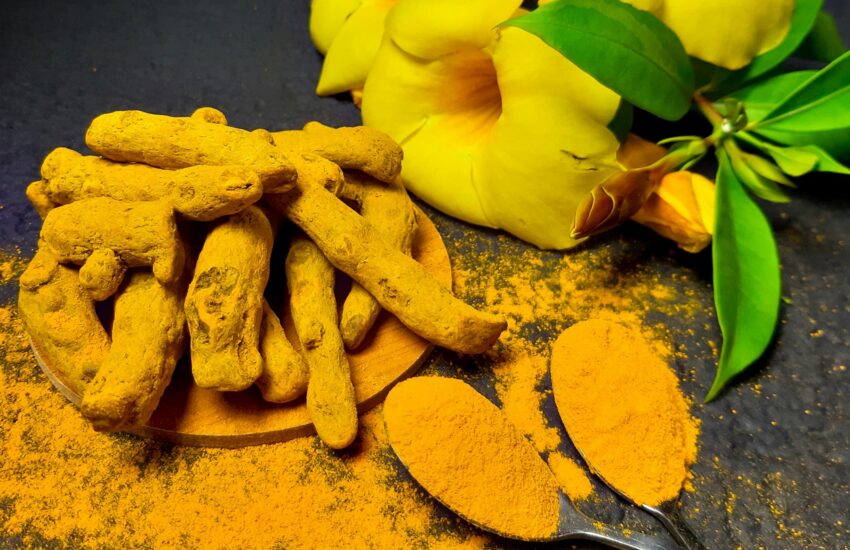Turmeric, a bright yellow spice derived from the root of the Curcuma longa plant, is celebrated not only for its vibrant color but also for its extensive health benefits. The primary compound responsible for these benefits is curcumin, a powerful bioactive substance with impressive therapeutic potential. Here’s 10 reasons why turmeric is considered good for your health which is suggested by Mohit Tandon Houston:
1. Anti-Inflammatory Properties
Firstly, Turmeric contains an active compound called curcumin, which is famous for its powerful anti-inflammatory effects. Chronic inflammation is a root cause of many diseases, including heart disease, cancer, and neurodegenerative conditions. Curcumin helps to block inflammatory pathways in the body, reducing inflammation and thereby potentially lowering the risk of these diseases. Research has shown that curcumin can inhibit the activity of various inflammatory enzymes and molecules, offering a natural way to manage inflammation.
2. Antioxidant Benefits
The antioxidant properties of turmeric are another reason for its acclaim in the health community. Curcumin is a potent antioxidant that helps to neutralize free radicals, which are unstable molecules that can cause oxidative stress and damage cells. By scavenging these free radicals, curcumin helps to protect cells from damage and supports overall cellular health. This antioxidative action also contributes to the prevention of chronic diseases and the aging process. – Mohit Tandon Houston
3. Supports Digestive Health
Especially, Turmeric has been traditionally used to support digestive health. Curcumin promotes the production of bile, which aids in digestion and the breakdown of fats. It also helps to soothe the digestive tract and reduce symptoms of indigestion and bloating. Additionally, turmeric has been shown to have a protective effect against inflammatory bowel diseases, such as Crohn’s disease and ulcerative colitis, due to its anti-inflammatory and healing properties.
4. Enhances Brain Function
Curcumin in turmeric may play a significant role in supporting brain health. It has been found to increase levels of brain-derived neurotrophic factor (BDNF), a protein associated with cognitive function and mental health. Higher levels of BDNF are linked to a lower risk of neurodegenerative diseases like Alzheimer’s. Moreover, curcumin’s antioxidant and anti-inflammatory effects help to protect the brain from oxidative damage and inflammation, further supporting cognitive health.

5. Aids in Joint Health
Turmeric is well-regarded for its ability to support joint health, particularly in conditions like arthritis. The anti-inflammatory properties of curcumin can help to reduce joint pain, stiffness, and swelling. Research suggests that turmeric supplements can be as effective as some non-steroidal anti-inflammatory drugs (NSAIDs) in alleviating arthritis symptoms. By targeting inflammation and oxidative stress, turmeric can contribute to better joint mobility and comfort.
6. Supports Cardiovascular Health
Turmeric’s benefits extend to cardiovascular health as well. Curcumin has been shown to improve the function of the endothelium, the lining of blood vessels. Basically, It is crucial for maintaining healthy blood pressure and reducing the risk of heart disease. Additionally, turmeric helps to lower levels of LDL cholesterol and triglycerides, both of which are risk factors for cardiovascular conditions. Its anti-inflammatory and antioxidant properties further support heart health by reducing inflammation and oxidative damage to the cardiovascular system.
7. Boosts Immune System
The immune-boosting properties of turmeric make it a valuable addition to a health regimen. Curcumin enhances the body’s ability to fight off infections and illnesses by modulating immune responses. Especially, It stimulates the production of immune cells and supports their function. Moreover, turmeric’s antimicrobial and anti-inflammatory properties contribute to a stronger immune system, helping the body to effectively combat pathogens and reduce the severity of infections.
8. May Aid in Cancer Prevention
Emerging research suggests that turmeric may have potential cancer-fighting properties. Curcumin has been studied for its ability to inhibit the growth of cancer cells and tumors. It works by affecting various molecular pathways involved in cancer development, including those related to cell proliferation, apoptosis (programmed cell death), and metastasis (spread of cancer). While more research is needed, the preliminary evidence is promising, indicating that turmeric may play a role in cancer prevention and therapy.
9. Supports Skin Health
Turmeric is also beneficial for skin health due to its anti-inflammatory, antioxidant, and antimicrobial properties. Curcumin can help to reduce symptoms of skin conditions such as acne, eczema, and psoriasis. It promotes wound healing and can improve the appearance of the skin by reducing hyperpigmentation and promoting an even skin tone. Additionally, turmeric’s anti-aging effects help to maintain skin elasticity and reduce the appearance of fine lines and wrinkles. – Mohit Tandon Houston
10. Assists in Weight Management
Lastly, Turmeric may assist in weight management by influencing metabolic processes. Curcumin helps regulate fat metabolism and reduces the accumulation of fat in the body. It may also improve insulin sensitivity, which is important for maintaining healthy blood sugar levels and preventing weight gain. By supporting metabolic health and reducing inflammation associated with obesity, turmeric can be a useful addition to a weight management plan.

